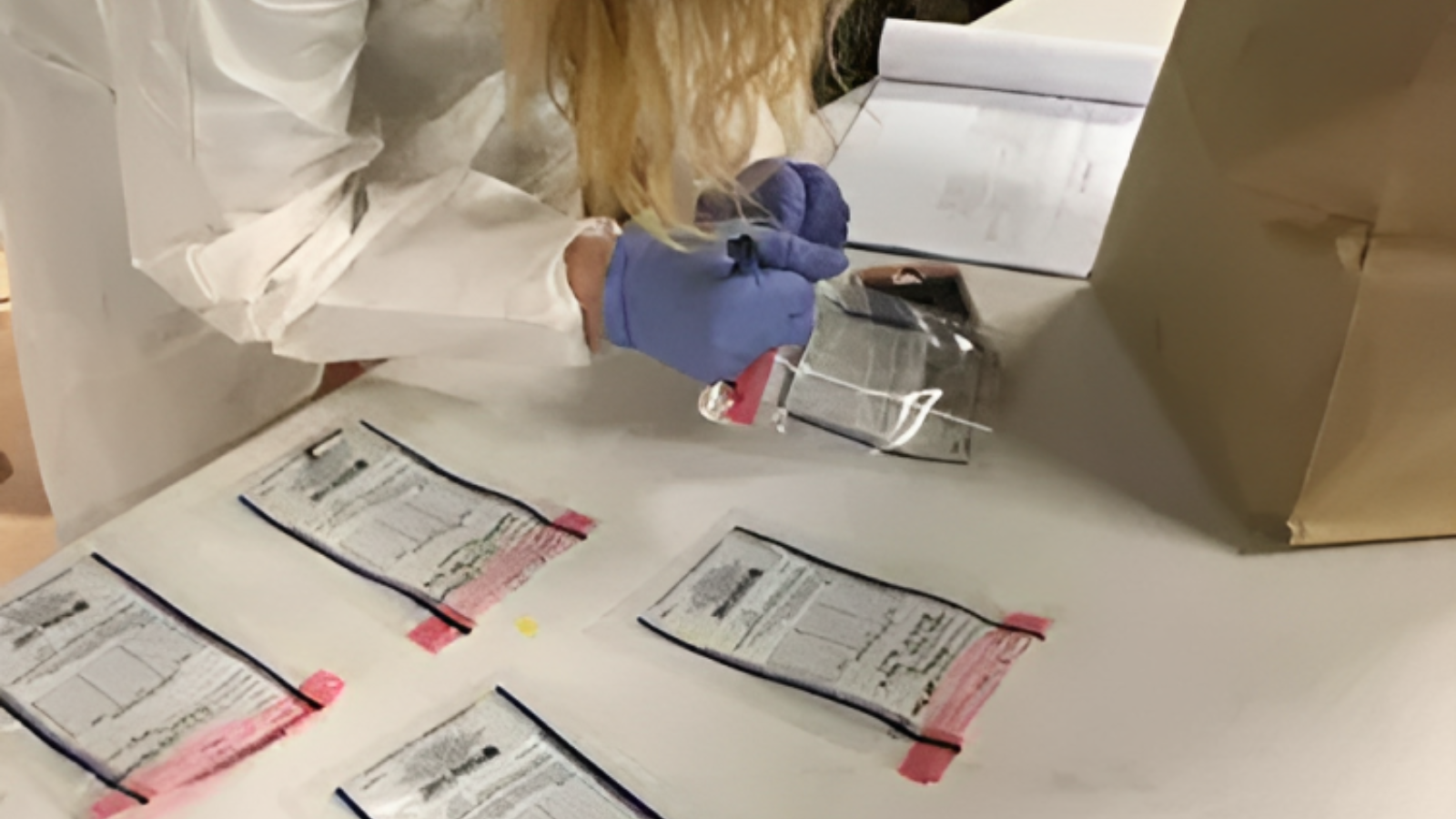
Unveiling the Crucial Role of Evidence Packaging Supplies in the Legal System

The legal system is a complex structure of rules, procedures, and institutions whose primary purpose is to uphold justice.
At the core of this intricate system lies a seemingly ordinary yet essential component: evidence packaging supplies. These seemingly unremarkable tools play a pivotal role in ensuring the integrity of evidence, protecting the rights of individuals, and ultimately contributing to the fair administration of justice.
Evidence packaging is a vital part of the process of collecting evidence.
In this discussion, we will delve into the essential role of evidence packaging supplies and their profound impact on legal proceedings.
Preserving the Chain of Custody:
Maintaining the chain of custody is of utmost importance in criminal investigations. It involves documenting and tracking the evidence chronologically, from the moment it is collected to its presentation in court. Evidence packaging supplies, such as tamper-evident bags, seals, and containers, play a crucial role in preserving this chain.
To ensure that the evidence has not been tampered with or altered during collection, storage, or transportation, the packaging supplies must be properly sealed and labeled. This establishes a foundation of trust in the legal process and upholds the integrity of the evidence.
Protecting Forensic Evidence: A Delicate Balance
Forensic evidence often holds the key to solving crimes. From DNA samples to bloodstained clothing, these materials are sensitive and can be easily contaminated or degraded.
Evidence packaging supplies provide a protective shield, preventing external factors such as moisture, contaminants, or mishandling from compromising the integrity of the evidence.
Specialized packaging, like blood evidence collection kits or DNA swab containers, ensures that the forensic evidence retains its reliability throughout the investigation and trial.
Ensuring Admissibility in Court:
It is crucial to follow strict legal standards when it comes to presenting evidence in court. If evidence is improperly packaged or mishandled, it may be deemed inadmissible, which could put the entire case at risk.
Evidence packaging supplies are designed with these legal technicalities in mind. They make it easier to comply with the rules of evidence, ensuring that the chain of custody documentation is thorough and that the evidence is presented in a manner that is acceptable to the court.
It is essential to package evidence correctly because attorneys, judges, and juries rely on admissible and reliable information to make informed decisions. Therefore, proper packaging of evidence is critical in ensuring that justice is served. It is crucial to follow strict legal standards when it comes to presenting evidence in court. If evidence is improperly packaged or mishandled, it may be deemed inadmissible, which could put the entire case at risk.
Evidence packaging supplies are designed with these legal technicalities in mind. They make it easier to comply with the rules of evidence, ensuring that the chain of custody documentation is thorough and that the evidence is presented in a manner that is acceptable to the court.
It is essential to package evidence correctly because attorneys, judges, and juries rely on admissible and reliable information to make informed decisions. Therefore, proper packaging of evidence is critical in ensuring that justice is served.
Mitigating Contamination Risks: A Scientific Imperative
In scientific terms, contamination is the introduction of foreign substances into a sample, potentially leading to inaccurate results.
Evidence packaging supplies play a critical role in mitigating contamination risks, particularly in cases involving biological or chemical evidence.
Properly sealed containers, sterile swabs, and tamper-evident packaging are essential to preserving the purity of the evidence. This is not only crucial for the accuracy of forensic analysis but also for maintaining the credibility of the legal system.
Facilitating Efficient Storage and Retrieval: A Logistical Necessity
Legal cases can span months or even years, requiring long-term storage of evidence.
Proper evidence packaging supplies ensure efficient and organized storage, allowing for easy retrieval when needed. Well-labeled, sealed packages contribute to a systematic and traceable storage system, preventing the loss or misplacement of crucial evidence.
This logistical efficiency is essential for both the prosecution and defense, as well as for potential reexaminations or appeals.
Protecting the Rights of the Accused: A Constitutional Imperative
Proper handling and packaging of evidence is crucial not just for building a strong prosecution case, but also for upholding the rights of the accused.
Constitutional principles guarantee a fair trial, which necessitates careful handling of evidence to maintain its authenticity. Evidence packaging supplies serve as a safeguard against any procedural errors that could compromise the rights of individuals who are under legal scrutiny.
Deterrence and Accountability: A Discouragement to Tampering
Tamper-evident evidence packaging supplies serve a dual purpose – not only do they protect the integrity of the evidence, but they also act as a deterrent against tampering.
Knowing that evidence is sealed in a way that any attempt at interference will be readily apparent discourages unethical practices.
This contributes to the accountability of those handling the evidence, from crime scene investigators to laboratory technicians, fostering a culture of responsibility within the legal system.
Environmental Considerations: Balancing Sustainability and Functionality
In recent years, there has been a growing awareness of the environmental impact of various industries, including law enforcement. The choice of evidence packaging supplies now extends beyond functionality to include sustainability considerations.
Many legal agencies are adopting eco-friendly packaging options without compromising the integrity of the evidence.
Biodegradable evidence bags, recyclable containers, and reduced-plastic alternatives demonstrate a commitment to environmental responsibility without compromising the legal process.
Technological Advancements: Integrating Innovation
As technology advances, evidence packaging supplies are also evolving. Smart packaging, equipped with tracking devices or sensors, is emerging as a potential game-changer.
This innovation not only enhances the security of evidence but also provides real-time monitoring of its location and condition. Integration with digital systems streamlines the documentation process and further fortifies the chain of custody.
Training and Standardization: Ensuring Competence and Consistency
The effectiveness of evidence packaging supplies is contingent upon the competence of those handling them.
Training programs for law enforcement personnel, forensic experts, and legal professionals are essential to ensure that proper procedures are followed. Standardization in the use of evidence packaging supplies across jurisdictions promotes consistency and reliability in legal processes. It reduces the likelihood of errors and strengthens the overall integrity of the criminal justice system.
Conclusion: Beyond the Packaging, Upholding Justice
In the intricate tapestry of the legal system, evidence packaging supplies may seem like mere details, but their significance cannot be overstated.
From preserving the chain of custody to protecting forensic evidence, ensuring admissibility, mitigating contamination risks, and upholding constitutional rights, these supplies play a multifaceted role.
As technology and environmental considerations shape the landscape of evidence handling, the legal system adapts to embrace innovations that enhance both functionality and sustainability.
In essence, the role of evidence packaging supplies goes beyond the physical act of packaging; it is about upholding justice, maintaining trust in the legal process, and safeguarding the rights of individuals in society.
Share:
Get A Quick Quote
Social Media
Most Popular
Categories
Tags
Related Posts

Protecting Your Assets: How Payroll Deposit Bags Can Prevent Theft and Fraud
In the world of business, trust and security are paramount. As a business owner or manager, you work hard to ensure that your operations run

A Step-by-Step Guide on How to Organize Payroll with Payroll Bags
Managing payroll can be a daunting task for any business, big or small. Keeping track of employee wages, taxes, and other deductions requires meticulous organization

The Ultimate Guide to Organizing and Storing Soil Bags
If you’re a gardening enthusiast, you know how important it is to have good-quality soil for your plants to thrive. Soil bags, whether they be



